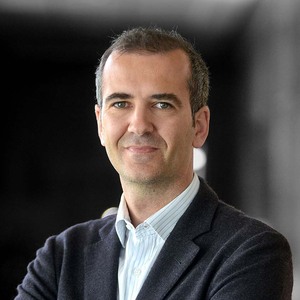Ten questions to ask your executive search provider

Choosing an executive search partner to fill a leadership role in your organisation is one of the most important business decisions you’ll ever make. And yet, says Dr Thomas Heyn, if the team hiring the search partner doesn’t understand the process, they won’t ask the right questions.
“I wish I had a dollar for every time I’ve been asked, ‘So, what makes you different from the rest,’” says Heyn, a veteran of the executive search industry and co-founder of Jack Russell Consulting / AltoPartners Germany. “Clients think this is a good question to throw out during a pitch meeting, but it leaves the way clear for firms to focus on their selling points and gloss over any shortcuts in their processes or gaps in their experience. Asking the right questions at the outset is key to a successful search outcome”.
Whether you’re based in Alberta or Zaragosa, Cape Town or Casablanca, the fundamentals of a good search process remain the same. Here are 10 questions suggested by some of our partner firms across 36 countries that are guaranteed to produce the best search outcome.
QUESTION 1: Who is going to lead this search, and what do they know about my industry and the talent pool?
Ask to meet with the person who is going to conduct your search, advises Ricardo Bäcker, Founding Partner and Chairman of Bäcker & Partners / AltoPartners Argentina. Some search organisations have high-level account executives who manage the client interface, but the search is executed by the back office. It’s critical to know what experience the search professional conducting the search has, how deep their understanding of the problem you are trying to solve is, and how invested they are in the process. As Plácido Fajardo, Managing Partner Leaderland / AltoPartners Spain, points out, this is the person who ultimately decides who makes it onto the shortlist, and this has ramifications for your organisation and your stakeholders. If the partner pitching for the business is also the person who will be conducting the search, then you’re in luck because partners put their reputation on the line with every search, says Corinne Klajda, Managing Partner of Accord Group Poland and one of the founding members of AltoPartners.
According to Sonal Agrawal, Managing Partner, Accord India and Global Chair, AltoPartners, this is the main reason why AltoPartners prefers to invite strong entrepreneur-run local C suite executive search firms who retain their established local brands while leveraging off the skills and expertise created by the global community that is AltoPartners. “Apart from significant consulting experience, many of our partners have either been in executive leadership roles and have (or continue to) serve on boards and industry bodies. Hence, we take our role as trusted advisors seriously, applying our expertise and experience not just to the job profile but to broader leadership issues, be it relevant industry and organisational trends and insights and general advice on employee value proposition, succession planning, culture, DE&I, leadership and board effectiveness. In that sense, executive search can be transformational rather than just transactional,” says Agrawal.
QUESTION 2: Talk me through the search process. How do you go about drawing up a shortlist?
There is a misperception that the executive search professional’s stock in trade is a dusty Rolodex and an A-list of business contacts on speed dial. The truth is more prosaic and involves a great deal more groundwork. “A large talent pool with the right candidates significantly increases the options on the client side, and the client can be sure that they get only the very best candidates that exist. And for this, you cannot rely on your database, as it gets stale in six months, and you never confine your search to one sector,” says Sorin Popa, Managing Partner of the Accord Group / AltoPartners Romania. The secret to success is, more often than not, finding those candidates who are not looking for a career change, a surprising number of whom don’t even have an updated resume, LinkedIn or Xing profile. For example, explains Peter Tulau, Managing Partner at AltoPartners Australia, “If a client is looking for someone in the energy sector to head up a desalination project, we’d also map the extractive industry, infrastructure, construction and wastewater management industries for likely candidates. If there are 100 potential candidates out there, we make it our business to know who they are and work from there to narrow the search.”
This is why Dr Julia Zdrahal-Urbanek, Managing Partner of ALTO Executive Search GmbH in Austria, advises clients not to focus on a search partner’s network but on their methodology. “In executive search, success isn’t about having the largest database or network. Experienced consultants naturally possess extensive networks and databases. If a consultant claims their unique selling point is their superior network or database, be cautious. What truly matters is the team’s and partner’s competence to conduct a thorough and structured search across the entire candidate market. This ensures all potential candidates are identified, regardless of their LinkedIn presence or profile updates.”
“Requesting regular, structured candidate long lists will help you, as the client, to understand the search process. It’s also important to inquire how LinkedIn candidates are validated. Executive search consultants represent you to potential candidates, and it’s crucial they do so professionally. It’s embarrassing if they contact the wrong candidates due to unvalidated or outdated LinkedIn profiles.”
Clients should also ask about leadership assessments, reference checking and interview protocols, advises Claudia Allwißer, Managing Partner at Jack Russell Consulting / AltoPartners Germany.
QUESTION 3: How long will it take?
It takes time to draw up a full role profile, perform a company culture assessment, map the talent pool, identify suitable candidates, and then review each one against the requirements to produce a quality shortlist. Be cautious of overly optimistic time frames and interrogate them carefully. “The search process is a partnership between the client and the search professional. It is essential that the client receive regular updates to allow for course correction and to maintain the search momentum”, says Pieter Ysbrandy, Partner at Leaders Trust / AltoPartners the Netherlands
QUESTION 4: Do you independently benchmark salaries and remuneration packages so we know whether we have pitched our remuneration package correctly?
As Kevin Hall, Managing Partner of Bluestone Leadership Services / AltoPartners Canada and co-head of the AltoPartners Global Natural Resources Practice Group, points out, it’s common for clients to have champagne tastes and beer budgets. “Setting realistic expectations and ensuring clients understand the labour market is critical. We may have to look at other perks that would provide a compelling value proposition if the client can’t afford them, either on base or performance pay. There may also be less experienced, and therefore more affordable, candidates who relate well to the client’s organisational culture and can grow in the position. In my 22 years as a search professional, the candidate’s ability to fit with the organisation’s culture trumps experience every single time.”
QUESTION 5: How will you ensure that the candidate fits in?
“Culture can eat strategy for breakfast,” says Mpho Nkeli, Executive Chairperson & Head: Board Practice Search Partners International (SPi) Executive Search / AltoPartners South Africa, referring to the pivotal role that culture plays in determining how successful a placement will be. She starts every new search by taking a detailed brief about the company. This includes the company strategy, candidate experience requirements to match the strategy, success indicators, barriers to success, and, specifically, the company culture. “A new leader can either make the existing culture or break it. One way to confirm the leadership culture is through a leadership culture survey, which we would run with the existing executive team. If the client is happy with their culture, then a candidate with a culture match is ideal.
“However, if the current leadership culture does not enable the delivery of the strategy, then the ideal candidate should be one who can steer the company in that direction. The board should be ready to have executives exit as the new leader changes the culture. In this case, the disruption created by the exits must benefit the company in the medium to long term,” she says.
QUESTION 6: What guarantees do you offer?
Retained firms commit to placing the position, and a mandate ends only with the right placement. “We continue until we find the right person,” says Verena Acerbi, Partner, ALTO Executive Search GmbH in Austria. The contract also needs to be clear under what circumstances the search partner will conduct the search again at no professional cost should the candidate leave within an agreed-upon timeframe.
QUESTION 7: What do the professional fees include?
Some search companies routinely include labour market mapping, candidate assessments, culture mapping, psychometric testing, and onboarding as part of their fee, but for some, these are add-ons. Heyn also says it’s important to understand what is excluded, such as travel costs associated with meeting non-local candidates.
QUESTION 8: Do you have any global off-limits?
Global off-limits refers to a policy or agreement that some executive search companies adhere to, which restricts them from recruiting employees from certain companies, usually their clients. This policy is designed to protect existing client relationships and maintain trust, but off-limits agreements can impact the talent pool. Make sure you’re fully informed about the firm’s recruiting capabilities and any restrictions—whether globally or nationally—that may apply, as they may restrict the executive search firm’s ability to approach potential candidates. This can influence the breadth and quality of candidates presented for your role. The off-limits period can vary. It might be a specific number of years after the end of a search or an ongoing agreement for as long as the search firm works with the client.
QUESTION 9: Can we talk to some of your recent clients?
Always ask for references, says Javier Canals, Managing Partner, AltoPartners Morocco. “The search professional’s track record must speak for itself, and the best way to judge it is by talking to their clients. That is why this is a referral business, and most of our work comes from word of mouth. This industry has a notoriously low barrier to entry, so I would also suggest that organisations new to executive search familiarise themselves with the Association of Executive Search Consultants’ updated professional standards, which are binding on all AESC members. It includes a Code of Professional Conduct and a client and candidate bill of rights.”
It’s always a good sign, adds Zdrahal-Urbanek, if an executive search consultant can demonstrate long-term client relationships. “This indicates a search consultant’s willingness to get to know the client well enough to be able to understand cultural nuances and profile requirements, including reading between the lines.”
QUESTION 10: How do you treat unsuccessful candidates?
Don’t neglect the candidates who were not selected, advises Marco Arcaini, Partner AltoSearch GmbH / AltoPartners Germany. “Clients must remember that the search consultant is acting as their ambassador in the search process. The way candidates are treated during the search process will influence their perception of the client’s brand. To be able to draw up a viable shortlist, a search consultant needs to engage with several interested candidates who, in turn, become invested in the outcome. We have a duty of care to all candidates on our shortlist, including those who are not selected. I make a point of personally giving each candidate feedback on the outcome and why they were not the preferred candidate this time around. They always leave with something. Simply forwarding a rejection letter is unacceptable and bad practice in our view.”
In the end, though, says Nicolás Mora Schrader, Managing Director of Equation Partners / AltoPartners Chile, it all comes down to commitment and partnership. “Clients should appoint a retained search firm with a view to fostering a long-term partnership, where the search firm invests in understanding the client’s business, culture, and strategic goals. For the best results, choose a retained search partner who is committed to building a deep, ongoing relationship with you.”
With grateful thanks to all the partners who shared their experiences of pitching to clients.

Thomas Heyn
Partner AltoPartners Munich
Ricardo Backer
Founding Partner & Chairman AltoPartners Buenos Aires
Plácido Fajardo
Managing Partner AltoPartners Madrid
Corinne Klajda
CEO, President of the Board AltoPartners Warsaw
Sonal Agrawal
Managing Partner AltoPartners Bangalore, AltoPartners Delhi+NCR, AltoPartners Kolkata, AltoPartners Mumbai
Sorin Popa
Managing Partner AltoPartners Bucharest
Peter Tulau
Managing Partner AltoPartners Sydney
Julia Zdrahal-Urbanek
Founder & Partner AltoPartners Vienna
Claudia Allwißer
Partner AltoPartners Munich
Kevin Hall
Special Advisor AltoPartners Calgary
Mpho Nkeli
Executive Chairman & Head: Board Practice AltoPartners Johannesburg
Javier Canals
Partner AltoPartners Casablanca
Marco Arcaini
Partner AltoPartners Wiesbaden

